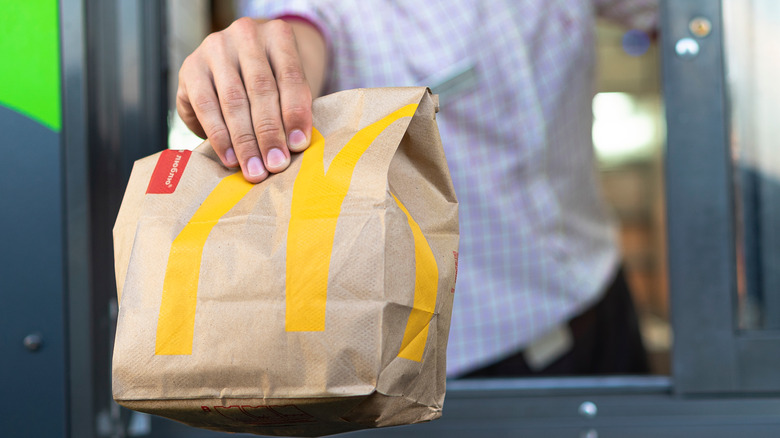California's Fast Food Bill Was Just Signed. Here's What Happens Next
From Starbucks employees forming a workers' union to New York City passing a law that ensures workers can't be unfairly fired (per The Official Website of the City of New York ), 2021 and 2022 have been filled with movements to improve the livelihood of employees in the fast food industry. However, one California bill this year may very well set a precedent for future legislation on fast food workers' rights.
Because while The Fast Food Accountability and Standards Recovery (FAST) Act does involve increasing California fast food workers' wages, per Fox 40, the bill also aims to " ... shield workers from retaliation and ensure workplaces are free from discrimination and harassment." Although the bill passed California's State Senate at the end of August, it was up to California Governor Gavin Newson to decide whether it would officially become law.
September 5, 2022, which happened to be Labor Day, Fox 40 reported Newson signed off on what is being described as a milestone piece of legislation for the fast food world. This means that California's fast food industry has some big changes in the works.
The FAST Act is shaking up fast food in California
The FAST Act has two main goals. The first is to ensure fast food employees are paid a livable wage. To achieve this, the law will have all fast food workers paid $22 an hour by 2023 (per Fox 40). And, according to The Washington Post, California will continue to regulate the minimum wage each year to account for inflation.
The FAST Act's second goal is to guarantee that fast food workers have a safe working environment. Fox 40 reports that the law passing means that a ten member Fast Food Council composed of workers and employers in the industry as well as two California officials must now be created. The council will be capable of affecting the state's minimum wage and will be able to set the standards for workplace safety. The Washington Post noted that the FAST Act also ensures employees are protected from being unfairly treated by their employers.
While many may view the passing of the FAST Act as a win for the fast food industry, businesses that did not support the FAST Act do not share the sentiment. The law, which only affects restaurant chains with at least 100 locations across the U.S., is expected to cause fast food prices to go up and, as stated by The U.S. Chamber of Commerce, will potentially affect small business owners who operate an individual franchise of a large company.

